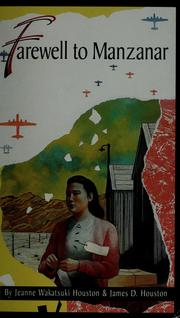

The book describes the Wakatsuki's' experiences during their imprisonment and events concerning the family before and after the war. Soon after, she and the rest of her family were imprisoned at Manzanar (an American internment camp), where 11,070 Americans of Japanese ancestry and their immigrant parents-who were prevented from becoming American citizens by law-were confined during the Japanese American internment during World War II. They have to move to Terminal Island, where her father, a fisherman who owned two boats, was arrested by the FBI following the Pearl Harbor attack on December 7, 1941. At age seven, Wakatsuki-a native-born American citizen-and her family were living on Ocean Park (near San Pedro, California).

Jeanne omits the ensuing years which acclimate her to the Caucasian world and assure her that marriage to an Anglo and motherhood of Anglo-Japanese children are right and proper.Jeanne Wakatsuki (the book's narrator) is a Nisei (child of a Japanese immigrant). Her choice produces a paradox, the stereotypical bittersweet taste of an unfulfilling victory, which shoves her face-to-face with bigotry in the form of girls who patronize her Oriental heritage while planning a post-coronation party which does not include her. The arrival of puberty puts Jeanne in a quandary - whether to fake a traditional Japanese femininity or compete for carnival queen. For Jeanne, the lesson makes sense - give them what they want, but keep your distance. The getup lands her one firm Caucasian female friend and a host of admiring males. More attuned to the sweater-clad World War II Betty Grables than mincing Japanese beauties or dramatic kabuki dancers, Jeanne picks her costume - a braided majorette outfit, baton, and white boots. Her too-wide smile, which defeats a geisha and an odori instructor and infuriates her old-school father, defines the face of the all-American girl. Like Rapunzel letting down her hair, Jeanne uncoils the traditions that bind Japanese women to a rigid patriarchy. If prayer won't produce apricots from the Almighty, maybe she should read more books and plunge deeper into the fantasy world of princesses and queens. If Papa won't allow conversion to Catholicism, then dance lessons may be even better. She remains flexible and resilient her methods of escape reflect an ability to improvise.

Manzanar becomes the unfair burden thrust on Jeanne's back by two nations at war. Along the way to adulthood, she stumbles over more adversity than the average American child ever encounters. Jeanne, who successfully forces herself back to a childlike state, recounts hopes, aspirations, responsibilities, and disappointments from the point of view of her earlier self.


 0 kommentar(er)
0 kommentar(er)
